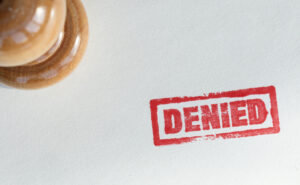
Applying for Social Security Disability (SSD) benefits can be a lengthy and complex process. Unfortunately, many initial applications are denied, leaving applicants frustrated and unsure of their next steps. Understanding why claims are often denied and learning how to appeal can make a significant difference. Here, PLBH outlines the top reasons for SSD denials and offers guidance on how to pursue an appeal effectively.
Common Reasons for Social Security Disability Denials
One of the most common reasons for SSD denials is incomplete or inaccurate information on the application. Missing documents, failure to provide medical evidence, or errors in the application can lead to a swift denial.
Lack of Sufficient Medical Evidence
The Social Security Administration (SSA) requires detailed medical records to prove that your condition prevents you from working. Applications without adequate evidence of a severe impairment are often denied.
Failure to Follow Prescribed Treatment
If you do not follow your doctor’s recommended treatment plan without a valid reason, the SSA may view this as evidence that your condition is not as debilitating as claimed.
Earning Above the Substantial Gainful Activity (SGA) Limit
If you are earning more than the SSA’s defined threshold for Substantial Gainful Activity, your claim may be denied because you are considered capable of substantial work.
Short Duration of Disability
To qualify for SSD, your condition must be expected to last at least 12 months or result in death. Claims based on short-term disabilities are typically denied.
Lack of Communication or Missed Deadlines
Failing to respond to SSA inquiries or missing deadlines for providing requested information can result in a denial. Timely communication is critical to a successful claim.
Steps to Take if Your SSD Claim is Denied
Your denial letter will include specific reasons for the SSA’s decision. Carefully review the letter to understand why your claim was denied and what evidence or information is needed to address the issues.
File an Appeal Promptly
You have 60 days from the date you receive the denial letter to file an appeal. There are four levels of appeal:
- Reconsideration: Request a new review of your application by a different SSA representative.
- Hearing by an Administrative Law Judge (ALJ): Present your case and any new evidence before a judge.
- Appeals Council Review: Request a review of the ALJ’s decision if you believe an error was made.
- Federal Court Review: File a lawsuit in federal court as a last resort.
Gather Additional Evidence
Address the gaps or weaknesses identified in your denial letter. This may involve:
- Collecting additional medical records
- Obtaining statements from your doctors
- Including testimony from family or coworkers about how your disability impacts your daily life
Work with a Qualified Advocate
Navigating the appeals process can be challenging, but an experienced attorney can significantly improve your chances of success. They can help you gather evidence, meet deadlines, and present a compelling case.
Tips for Strengthening Your SSD Appeal
Double-check all forms and ensure they are filled out correctly. Include detailed descriptions of how your disability affects your ability to work.
Maintain Consistent Medical Treatment
Continue receiving treatment for your condition and follow your doctor’s recommendations. Document all appointments and any changes to your treatment plan.
Be Honest About Your Limitations
Exaggerating or downplaying your symptoms can harm your case. Provide honest and accurate accounts of your daily challenges and limitations.
Prepare for the Hearing
If your appeal reaches the ALJ hearing level, prepare thoroughly. Your attorney can help you anticipate questions and present your evidence effectively.
Contact PLBH for Help with Your SSD Appeal
Don’t let a denial discourage you from pursuing the benefits you deserve. At PLBH, we have extensive experience helping employees secure Social Security Disability benefits. Call (800) 435-7542 today to schedule a consultation and learn how we can help you successfully appeal your claim.
